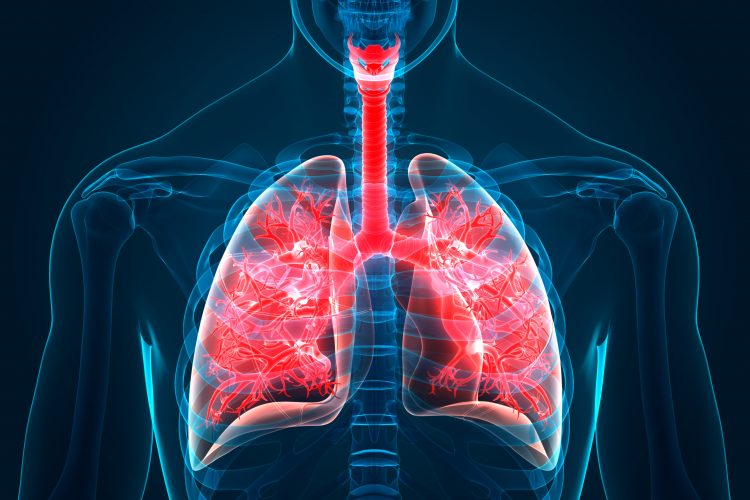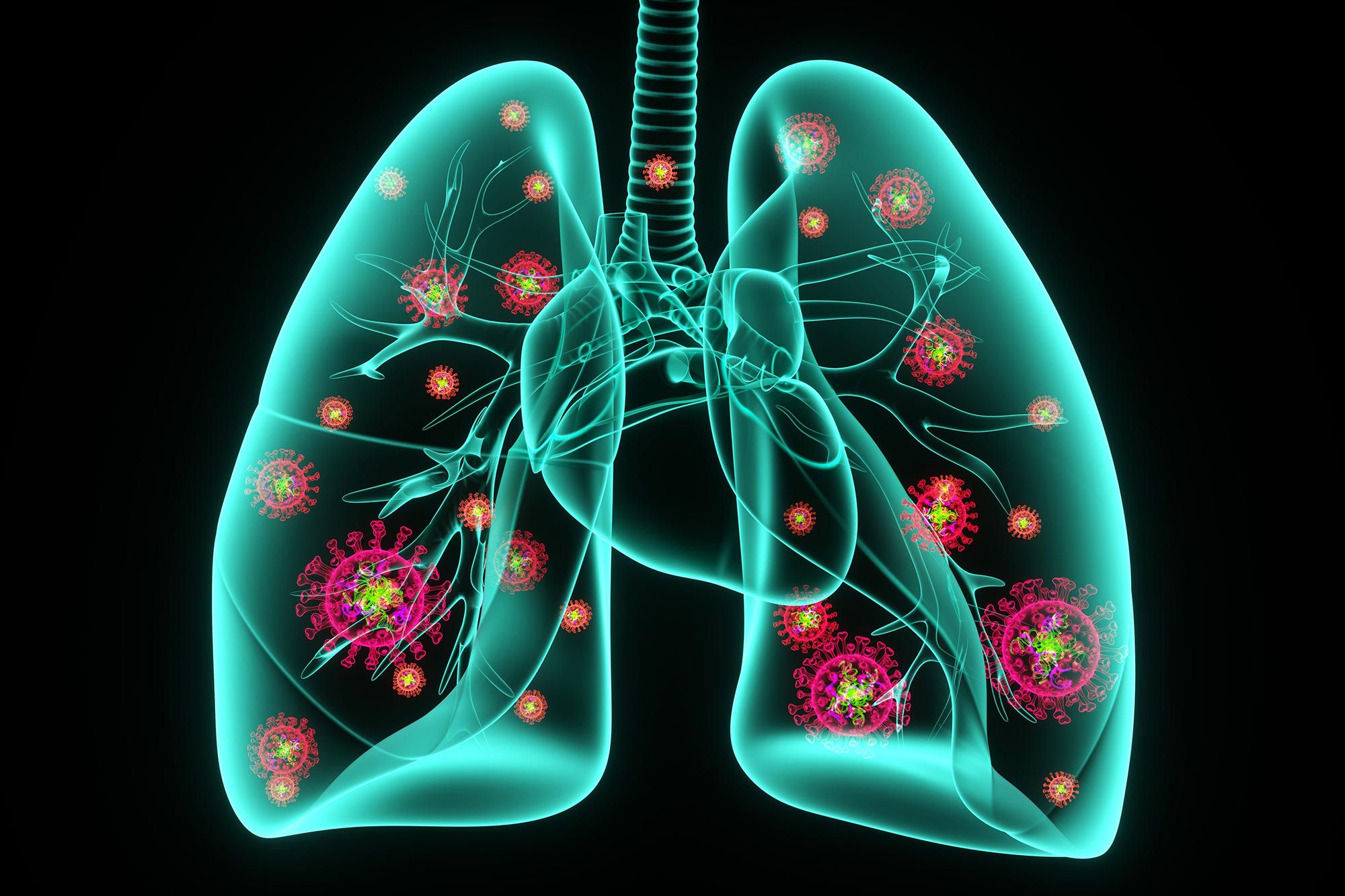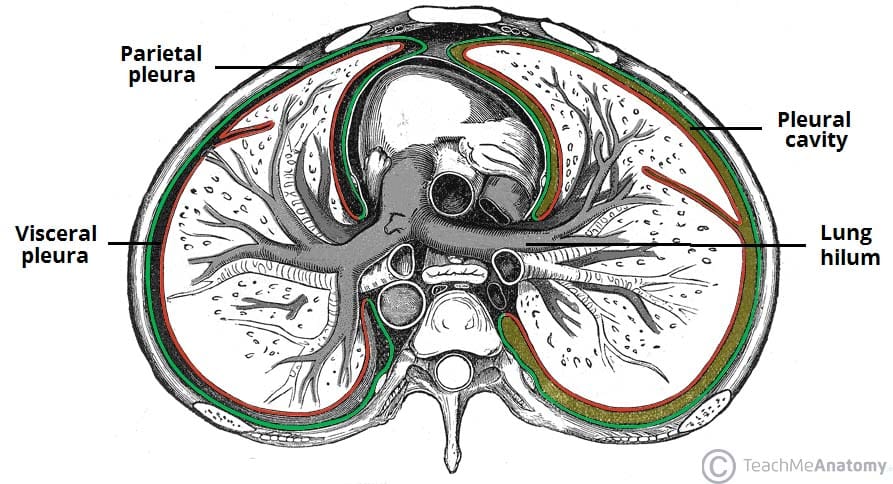The right lung consists of three lobes: the superior, middle, and inferior lobes. The left lung consists of two lobes: the superior and inferior lobes. A bronchopulmonary segment is a division of a lobe, and each lobe houses multiple bronchopulmonary segments.
BIO-2524: Lab 8 HW Flashcards | Quizlet
Introduction In this lab, you will examine the muscles of respiration, lungs, heart, and roots of the great vessels. The lungs function for the exchange of oxygen and carbon dioxide between the alveoli and the blood.

Source Image: drugtargetreview.com
Download Image
Jul 24, 2023The purpose of the lung is to provide oxygen to the blood. The respiratory system divides into airways and lung parenchyma. The airways consist of the bronchus, which bifurcates off the trachea and divides into bronchioles and then further into alveoli. The parenchyma is responsible for gas exchange and includes the alveoli, alveolar ducts, and bronchioles. Lungs have a spongy texture and have

Source Image: scitechdaily.com
Download Image
Lab Quiz 6 – Respiratory System Flashcards | Quizlet Aug 15, 2022The lung on your right side is divided into three lobes: the superior, the middle and the inferior. It’s shorter than your left lung, but also wider than your left lung. Both of your lungs are covered with a protective covering called pleural tissue. Left lung. Your left lung has two lobes: the superior and the interior.

Source Image: quizlet.com
Download Image
Identify The Highlighted Structure Of The Lung
Aug 15, 2022The lung on your right side is divided into three lobes: the superior, the middle and the inferior. It’s shorter than your left lung, but also wider than your left lung. Both of your lungs are covered with a protective covering called pleural tissue. Left lung. Your left lung has two lobes: the superior and the interior. The right lung comprises three lobes – inferior, middle and superior lobe that are distinguished by an oblique and deep horizontal fissure. The left lung has two lobes separated by an oblique fissure. The apexes of the lungs expand above the first rib, while both lungs in the thorax rest with their bases on the diaphragm.
LAB 5: Respiratory System Quiz Flashcards | Quizlet
Jan 6, 2024based on 217 ratings Original Author (s): David Walker Last updated: January 6, 2024 Revisions: 49 format_list_bulleted Contents add The lungs are the organs of respiration. They are located in the thorax, either side of the mediastinum. The function of the lungs is to oxygenate blood. Respiratory Image Practice Questions.doc – Real Anatomy Respiratory System 1 Identify the highlighted muscle. 2 Identify the highlighted structure. 3 | Course Hero

Source Image: coursehero.com
Download Image
Lung Pulmonary Breath Airway Anatomy Illustration Vector, Lung, Pulmonary, Anatomy PNG and Vector with Transparent Background for Free Download Jan 6, 2024based on 217 ratings Original Author (s): David Walker Last updated: January 6, 2024 Revisions: 49 format_list_bulleted Contents add The lungs are the organs of respiration. They are located in the thorax, either side of the mediastinum. The function of the lungs is to oxygenate blood.

Source Image: pngtree.com
Download Image
BIO-2524: Lab 8 HW Flashcards | Quizlet The right lung consists of three lobes: the superior, middle, and inferior lobes. The left lung consists of two lobes: the superior and inferior lobes. A bronchopulmonary segment is a division of a lobe, and each lobe houses multiple bronchopulmonary segments.

Source Image: quizlet.com
Download Image
Lab Quiz 6 – Respiratory System Flashcards | Quizlet Jul 24, 2023The purpose of the lung is to provide oxygen to the blood. The respiratory system divides into airways and lung parenchyma. The airways consist of the bronchus, which bifurcates off the trachea and divides into bronchioles and then further into alveoli. The parenchyma is responsible for gas exchange and includes the alveoli, alveolar ducts, and bronchioles. Lungs have a spongy texture and have

Source Image: quizlet.com
Download Image
Lab Quiz 6 – Respiratory System Flashcards | Quizlet Nov 21, 2023Blood supply. The lungs have dual, parallel blood supply referred to as pulmonary and systemic circuits. The pulmonary circuit arises from the heart and brings deoxygenated blood to the lung for gas exchange. This circuit also takes oxygenated blood back to the heart to be redistributed to the rest of the body.

Source Image: quizlet.com
Download Image
Solved Which structure is highlighted? ductus deferens O | Chegg.com Aug 15, 2022The lung on your right side is divided into three lobes: the superior, the middle and the inferior. It’s shorter than your left lung, but also wider than your left lung. Both of your lungs are covered with a protective covering called pleural tissue. Left lung. Your left lung has two lobes: the superior and the interior.

Source Image: chegg.com
Download Image
The Lungs – Position – Structure – TeachMeAnatomy The right lung comprises three lobes – inferior, middle and superior lobe that are distinguished by an oblique and deep horizontal fissure. The left lung has two lobes separated by an oblique fissure. The apexes of the lungs expand above the first rib, while both lungs in the thorax rest with their bases on the diaphragm.

Source Image: teachmeanatomy.info
Download Image
Lung Pulmonary Breath Airway Anatomy Illustration Vector, Lung, Pulmonary, Anatomy PNG and Vector with Transparent Background for Free Download
The Lungs – Position – Structure – TeachMeAnatomy Introduction In this lab, you will examine the muscles of respiration, lungs, heart, and roots of the great vessels. The lungs function for the exchange of oxygen and carbon dioxide between the alveoli and the blood.
Lab Quiz 6 – Respiratory System Flashcards | Quizlet Solved Which structure is highlighted? ductus deferens O | Chegg.com Nov 21, 2023Blood supply. The lungs have dual, parallel blood supply referred to as pulmonary and systemic circuits. The pulmonary circuit arises from the heart and brings deoxygenated blood to the lung for gas exchange. This circuit also takes oxygenated blood back to the heart to be redistributed to the rest of the body.